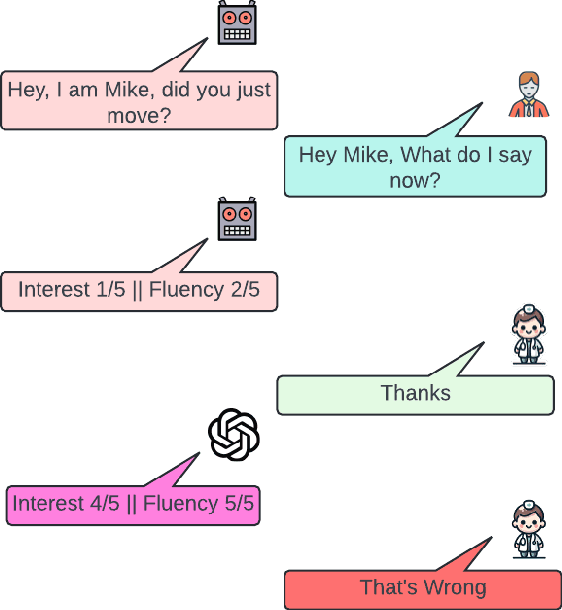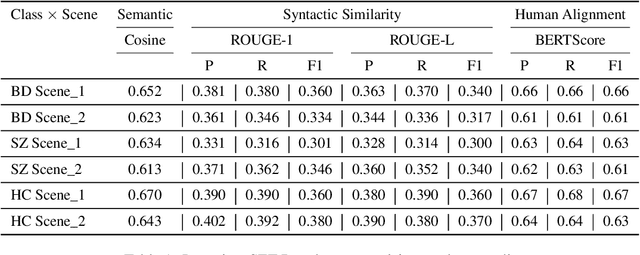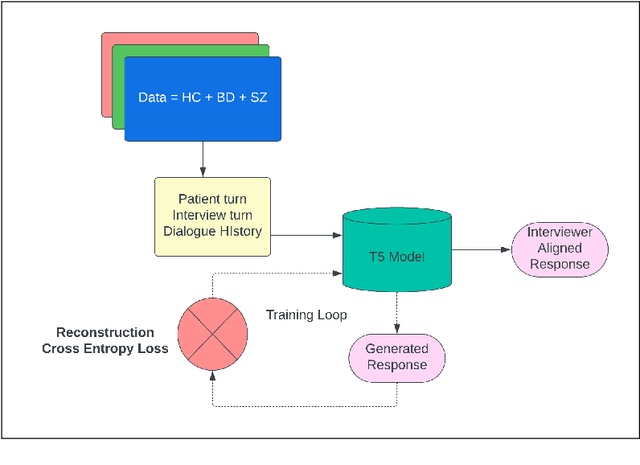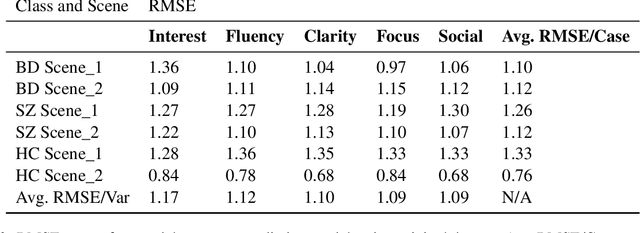Amy Pinkham
Using LLMs to Aid Annotation and Collection of Clinically-Enriched Data in Bipolar Disorder and Schizophrenia
Jun 18, 2024



Abstract:NLP in mental health has been primarily social media focused. Real world practitioners also have high case loads and often domain specific variables, of which modern LLMs lack context. We take a dataset made by recruiting 644 participants, including individuals diagnosed with Bipolar Disorder (BD), Schizophrenia (SZ), and Healthy Controls (HC). Participants undertook tasks derived from a standardized mental health instrument, and the resulting data were transcribed and annotated by experts across five clinical variables. This paper demonstrates the application of contemporary language models in sequence-to-sequence tasks to enhance mental health research. Specifically, we illustrate how these models can facilitate the deployment of mental health instruments, data collection, and data annotation with high accuracy and scalability. We show that small models are capable of annotation for domain-specific clinical variables, data collection for mental-health instruments, and perform better then commercial large models.
 Add to Chrome
Add to Chrome Add to Firefox
Add to Firefox Add to Edge
Add to Edge